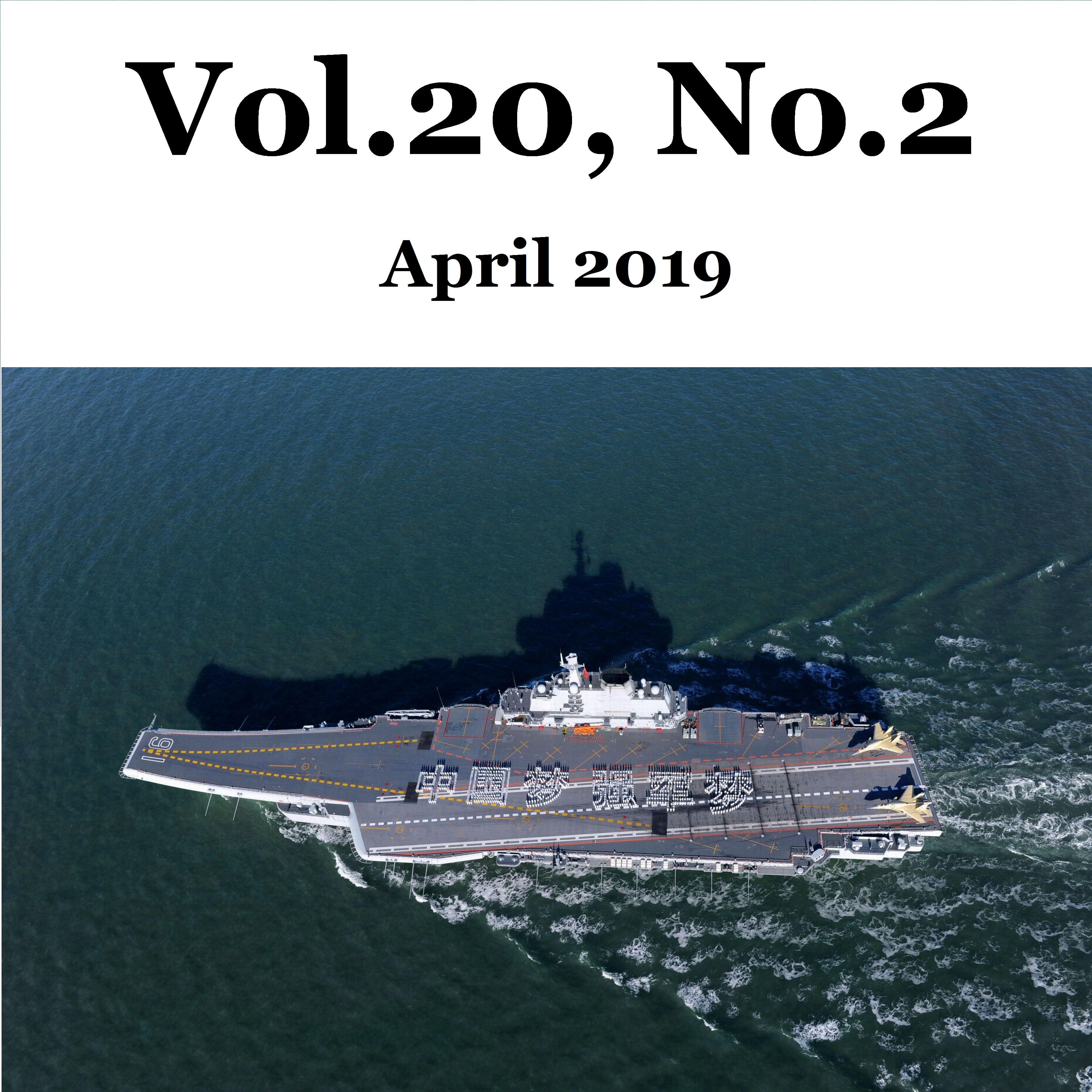China’s Military Expansion and the Threat to Taiwan: Seeking Restoration of Historical Status
Taiwan Social Sciences Citation Index(TSSCI)
Prospect Quarterly Vol.20 No.2 (April 2019)
China's Military Expansion and the Threat to Taiwan: Seeking Restoration of Historical Status
Source: Sayfamous, <https:/zh.sayfamous.com/civilization/military/27919039820090.html>.
U.S.-China Competition and the Belt-and-Road Initiative: A Perspective of Power Based on Global Network Culture
Professor & Director, Graduate Institute of China Military Affairs,
National Defense University
In recent years, the PLA has substantially expanded its military existence in the maritime periphery and changed the status of the regional order. From the perspective of realism, China is a typical revisionist which is seeking to change its status in the region. In history, such intention of expansion has only been stopped by military suppression of other power states. But China has continued to seek reunification with Taiwan since the frustration of the 1996 Taiwan Strait Missile Crisis and continued to enforce its military power for the purpose of national unification. Thus, China is not only a revisionist who wants to change the status, but a revivalist seeking national rejuvenation. China will not stop until its "historical status" is restored. Therefore, the military threat from China which Taiwan faces can only become heavier over time. This destiny has pushed Taiwan to establish close military cooperation with the US.
Keywords:China Dream, Strong Army Dream, Military Expansion, Revivalism, Taiwan Security Threat
A Shift in Xi's Strategy and the Changing Cross-Strait Security Situation: 2012-2018
Associate Professor, Department of Political Science ,
National Taiwan University
The shift in China's grand strategy after Xi's inauguration has caused had a sizable impact on Taiwan's security environment. The growth of China's military power continues to tilt the Cross-Strait military balance in China's favor, while challenging the credibility of the U.S.'security promise to Taiwan. Also, no matter how the situation unfolds, the fast-changing North Korean nuclear crisis will pose challenges to Taiwan's security. As the U.S.'security commitment to the region deteriorates, Japan also suffers from the strategic shift of Xi's China. Should a normalizing Japan chooses to develop its own deterrence capacity, this will cause a significant ripple effect to the security environment of Taiwan, a place which Japan deems to be an area of core interest.
Keywords: China's Strategic Shift, Taiwan's Security, US Commitment to Taiwan's Security, North Korea's Nuclear Crisis, Japan's "State Normalization"
Parochial Interests in China's Peacekeeping Policy: Discussion of PLA's Training Needs and Energy State-Owned Enterprises' Overseas Investments
Assistant Professor, Department of Public Security,
Central Police University
This essay devotes itself to answering the following questions: firstly, how does the department influence China's peacekeeping operation (PKO) policy in Xi Jinping's administration? Secondly, is the influence of the department in Hu Jintao's era similar to that under Xi? Thirdly, if the department is a dominant authority on PKO policy, would PKO policy be more inclined to its interest? Given the military department's preference, while the scale of PKO mission increases, the more troops Beijing will dispatch; however, while the casualty record in its mission becomes more severe, Beijing will decrease their personnel contribution. Secondly, while state-owned enterprises (SOEs) invest more in their host country, Beijing will also contribute more troops, but this effect occurs only on the condition that the mission scale and casualty record satisfies military's preferences. Finally, the analysis in this research indicates that parochial interest still influences China's policy under Xi, but the Chinese military is more influential than other departments.
Keywords:China, Peacekeeping Operation, People's Liberation Army, Parochial Interest, Energy State-Owned Enterprises
_
